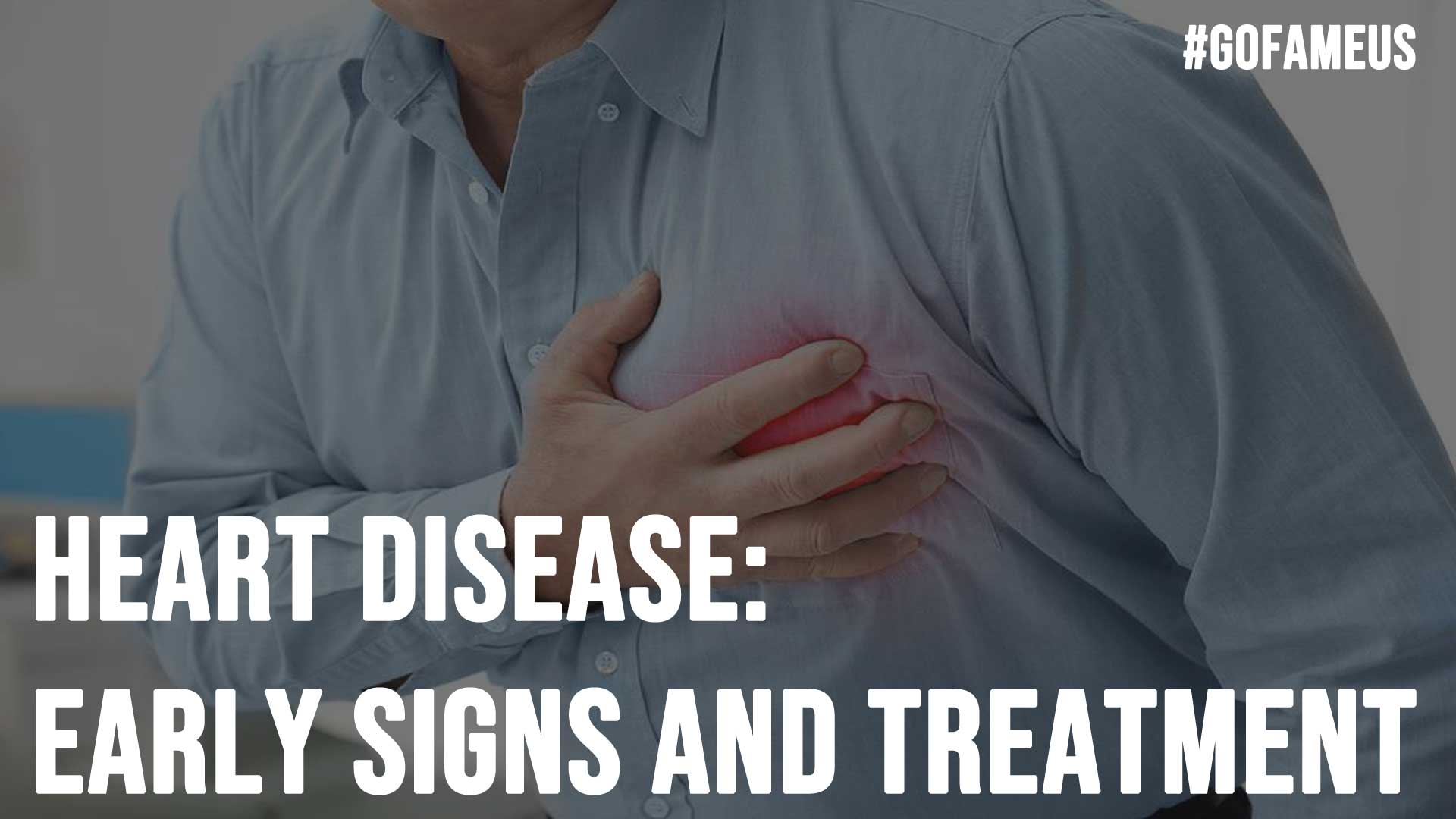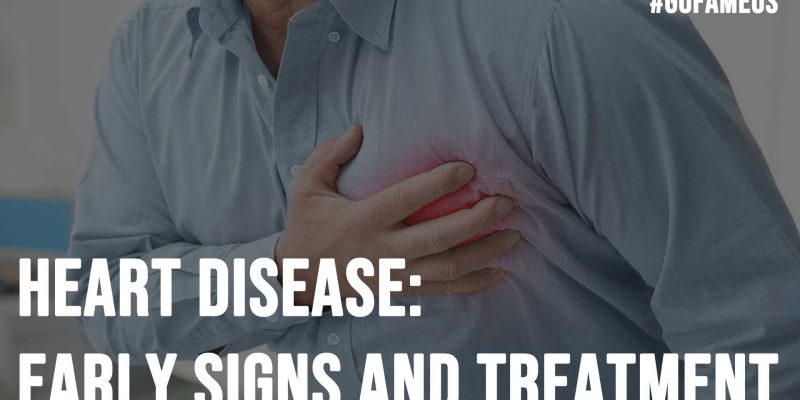Heart diseases are one of the leading causes of death. Heart disease refers to the conditions related to your heart, also often known as cardiovascular disease. According to a study, “50% of all heart attacks in Indian men occur under 50 years of age”.
A heart attack occurs when a blood clot is formed in one of the blood vessels that are responsible for supplying blood to the heart. Diseases such as coronary artery disease, heart rhythm problems, and heart defects you are born with are many heart disease forms.
If you experience any of the signs given below, it is best to visit the best cardiac treatment hospital in Bangalore to get yourself checked and get the best treatment for any heart disease.
Moreover, heart diseases can happen to anyone, young or old, overweight, or fit; it does not discriminate.

Hence, it is better always to adopt a healthy lifestyle to avoid any heart problems.
Types And Symptoms of Heart Diseases
Different types of heart disease have various symptoms. Find below a list of the types of heart diseases and symptoms below:
Heart Infections
Bacteria, parasites, and viruses cause heart infections. Conditions such as myocarditis and endocarditis may be used to describe the term heart infections.
Symptoms of Heart Infections:
- Chest pain
- Coughing
- Congestion
- Fever
- Chills
- Skin rash
Also Read: Why Should You Consider Ayurvedic Medicine Over Modern Medicine?
Arrhythmia
Arrhythmia refers to an abnormal heart rhythm. Your heartbeat might be too fast or too slow, but symptoms largely depend on the type of arrhythmia you have.
Symptoms of Arrhythmia:
- Fluttering heart
- Racing heartbeat
- Dizziness
- Chest pain
- Slow pulse
- Fainting spells
Coronary Artery Disease
Coronary artery disease occurs by a build-up of plaque in the heart arteries, which move oxygen-rich blood to your heart and lungs.
Symptoms of Coronary Artery Disease:
- Shortness of breath
- Chest pain and discomfort
- Nausea
- Indigestion and gas
- Pressure in the chest
Atherosclerosis
Atherosclerosis is a hardening of the arteries, which reduces blood supply to your extremities.
Symptoms of Atherosclerosis:
- Coldness in limbs
- Weakness in your legs and arms
- Unexplained pain in some parts of your body
- Numbness in the limbs
Congenital Birth Defect
A congenital birth defect is an irregular heartbeat present at birth. It usually occurs when the heart is developing inside the fetus.
Symptoms of Congenital Birth Defect:
- Swelling of extremities
- Shortness of breath
- Fatigue and low energy
- Blue-tinged skin
- Irregular heartbeat
- Bloating
- Fatigue
- Rapid pulse
- Swollen legs, especially ankles and feet
What are the Risks of Heart Diseases?
There are risk factors related to heart diseases. Some risk factors are controllable, but some are not.
Here is a list of the following risks:
- High Cholesterol Levels
- Smoking
- Obesity
- High Blood Pressure
- Physically inactive
People who have diabetes are at a greater risk for heart diseases since an increase in blood sugar levels increases the chances of:
- Heart attack
- Angina
- Stroke
- CAD
Risk factors that you cannot control are:
- Ethnicity
- Sex
- Age
- Family history
Treatment
Treatment for heart diseases varies depending on the type of heart disease.
However, there are some treatments listed below:
Lifestyle Changes
A healthy lifestyle is critical in preventing heart disease. Small changes in your diet can not only improve your heart condition but also help in getting better.
A diet rich in fruits and vegetables can reduce the risk of heart diseases. Getting some exercise, reducing tobacco intake, and reducing alcohol consumption is also a part of a healthy lifestyle change.
Medications
Medications are necessary for some heart diseases, which are not preventable by just lifestyle changes. Your doctor will tell you which type of drug you need according to your heart disease.
Medications also help to reduce or stop the risks of complications.
Surgery
Sometimes surgery or invasive procedures become necessary to treat heart disease. The procedure performed will largely depend on the type of heart disease you have and the extent of damage to your heart.
It would be best to visit the best cardiac treatment hospital in Bangalore to get the procedure done.
Prevention
A specific type of heart diseases are not preventable, but you can avoid some if you incorporate certain lifestyle changes, which include:
- Exercise 30 minutes daily.
- Manage stress
- Quit smoking
- Control other health conditions
- Reduce the intake of salt in your diet.
- Maintain a healthy weight
Also Read: 10 Foods with Super Health Beneficial Properties
Conclusion
We should always remember to take great care of our body’s most essential organ: the heart. Sometimes it takes a lifetime of medication to improve the condition of heart diseases. In case you feel you might be experiencing any of the symptoms, make sure to visit your doctor.
Sit with your doctor, discuss the problems and solutions with them, and develop a good plan of action. Surgeries are not always necessary, but sometimes they are the only option available. It is incredibly vital not to ignore any potential signs of heart disease.




